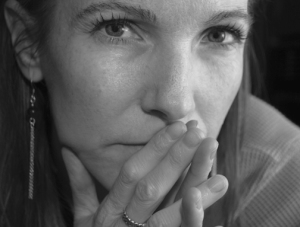 The night that should have ended my marriage, but didn’t, was a mid-winter night about six months after my wedding, during my senior year in college. I don’t remember why my husband and I started arguing, or when the fight escalated. I do remember getting thrown against the wall repeatedly, punched in the arms and torso, then slapped to the floor, my glasses shattering. This continued for a while until my husband went to bed.
The night that should have ended my marriage, but didn’t, was a mid-winter night about six months after my wedding, during my senior year in college. I don’t remember why my husband and I started arguing, or when the fight escalated. I do remember getting thrown against the wall repeatedly, punched in the arms and torso, then slapped to the floor, my glasses shattering. This continued for a while until my husband went to bed.
I didn’t know how to respond to getting beaten up by my husband for the first time. I put on my coat and boots and trudged out into the snowstorm. I made my way to a phone booth and dialed information. When I asked for the number to a women’s hotline, the operator asked if I had been raped. Lacking the vocabulary to even describe what had happened, I said “no.” The operator responded that the only number he had was a rape hotline and he hung up. I went home and crawled into bed.
The night that did end my marriage wasn’t particularly violent by comparison. After more than two years of being beaten up semi-regularly, of covering bruises, lying to my co-workers, and being distanced from my family and friends, I came to my senses through three simple realizations in one night. First, I found myself lying to my husband to placate him, telling him that I was on the phone with his mother rather than my grandfather. How wrong, I realized, to have to lie about a simple phone call to my grandfather.
Later that evening, my husband slammed on the car brakes seconds before crashing through the garage door. Our infant daughter, strapped tightly into her car seat, was jolted and began crying. I was shocked to realize that my husband’s anger towards me knew no bounds and that he might harm this innocent little baby he claimed to cherish. Lastly, as our heated argument continued up the stairs and down the hall of my parents’ house, my mother asked us to lower our voices. I watched in horror as my husband tried to push my mother aside. For the first time, I turned on him. “How dare you,” I said, “slam a door on my mother in her own home?” Late that night I stared at him sleeping peacefully despite all that had happened and knew that I had to leave him.
My husband and I were high school sweethearts, dating for five years before we married. Our friends, centered in our Jewish youth group, recognized us as a unit. It was hard to walk away from that, even though we should have separated after high school. In hindsight, there were signs of his violent behavior even then, but he always had a convincing excuse for losing his temper, and I idealistically believed his promises that he would change. I was also reluctant to let go of someone who claimed to love me.
The diary I kept back then reveals my attempts to rationalize his behavior. In many ways, it was easier to have an excuse to be in the relationship than to admit that I was being abused by my own husband. Typical entries include statements like these: “He may not be perfect, but who says anyone more perfect is out there?” “Isn’t the point of marriage to bring two very different viewpoints together?” I also believed what he had told me over many years: that my parents were “messed up” and didn’t know what I needed in life, and that he just needed an equal chance to succeed in life.
There was also tremendous pressure to make a marriage work. In my community, shalom bayit, making peace in the home, was of utmost importance. I can’t imagine that anyone would have suggested that I remain in an abusive relationship, but, young and naïve as I was, I kept telling myself that if I were just more patient, more loving, more this or more that, then we could have the shalom bayit I so desperately wanted. As I lit candles every Friday night I would pray that I would be worthy of having a “faithful Jewish home.” Divorce seemed unthinkable, a rejection of the family values I lived by, as well as an admission of failure.
By M.K.
To read the rest of the article, please click here.
Article reprint courtesy of www.chabad.org



